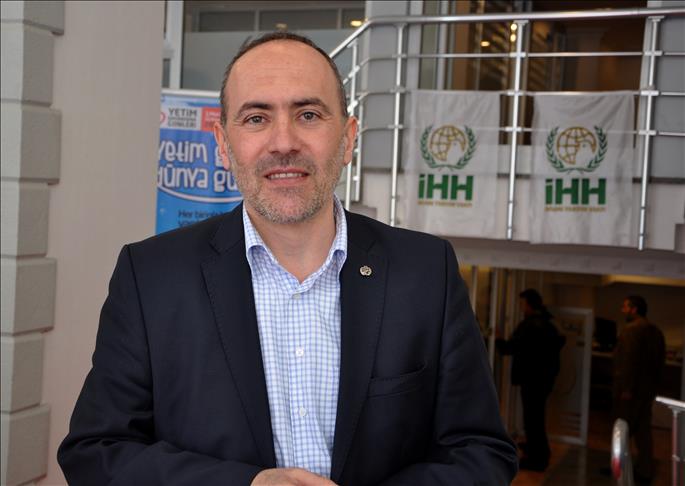
By Hader Glang and Satuk Bugra Kutlugun
ZAMBOANGA CITY, Philippines/ANKARA
The Philippines is lauding Turkey's involvement in peace talks between the government and the country's one time largest Moro rebel group, according to a statement Wednesday from the Office of the Presidential Adviser on the Peace Process which thanks Turkey for its contribution.
Turkey is involved in three stages of the process, while a group led by ex-parliamentarians is looking at ways in which it could help Turkey's on/off "solution process" with the Kurds.
“I’d like to thank the government of Turkey and the people of Turkey for their very active involvement in the peace process with regard to our talks with the Moro Islamic Liberation Front [MILF],” former Agriculture Secretary and peace panel official Senen Bacani said in the statement.
He added that Turkey had been represented in the International Contact Group (ICG) with the United Kingdom, Japan, and Saudi Arabia and four international NGOs, and in two other bodies.
The ICG has been observing conduct between the government and MILF as they move towards peace.
Office Secretary Teresita Quintos Deles said that another group from Turkey is also in the country to meet and talk with Philippine officials.
Huseyin Oruc (in picture) - vice president of the IHH Humanitarian Relief Foundation - told Anadolu Agency on Wednesday that the trip involves ex-parliamentarians, journalists, and actors, including Ali Bayramoglu, Fadime Ozkan, Yilmaz Ensaroglu, and Kadir Inanir.
"It's not an official delegation. It is a trip organized by the Democratic Progress Institute (DPI). They were meant to go there on October 2014, but the 6-7 October incidents happened so they could not go," he said.
In October, protests started throughout Turkey under the pretext that it had not done enough to halt Daesh attacks in Kobani, on Turkey's southern border with Syria.
By the end, at least 38 people and two police officers had died.
"The reason of their trip is to observe the on-going peace process in Philippines, how is it done. To affiliate with the Kurdish issue in Turkey. They went to Northern Ireland with that purpose before as well."
Oruc referred to an article by journalist Ali Bayramoglu in Thursday's Yenisafak newspaper, in which Bayramoglu underlined: "The main aim of the visit is to observe conflict resolutions at the very places of contact that can pave the way for Kurdish peace in Turkey."
Wednesday's statement from the Office of the Presidential Adviser added that Kerim Yildiz, the Turkish director of the Institute, had told Bacani-led peace panel officials that Turkey wants to learn from the conduct and lessons of the process for its own recently revitalized "peace talks."
The Turkish government launched the "solution process" initiative in 2013 with the aim of bringing an end to the decades-long conflict with the outlawed Kurdistan Workers’ Party (PKK), which resulted in a call for disarmament from jailed PKK leader Abdullah Ocalan.
Decades of conflict between the group and the Turkish security forces has led to the deaths of some 40,000 people.
Wednesday's statement quoted Yildiz as saying that “the Turks are at a very important stage."
He added that the group is interested in discussing “the architecture of a peace process, including the negotiations and cessation of hostilities; the role of the media; the role of civil society in mobilising a peace process; and the role of third parties.”
Peace panel official Bacani noted that Turkish involvement in the process stems beyond the ICG, which is involved in the body tasked to monitor compliance of the government and MILF to all signed agreements.
“Its [Turkeys] second involvement is in the Third Party Monitoring Team; there is an international NGO from Turkey that is represented,” said Bacani.
"Turkey is also represented in the Independent Decommissioning Body which is chaired by the former ambassador of Turkey to NATO [North Atlantic Treaty Organization], Ambassador Haydar Berk."
The IDB is tasked to oversee the decommissioning of MILF forces and weapons.
The statement added that the additional group were also interested in the challenges that the Bangsamoro peace process is facing, especially in terms of the implementation of peace agreements.
Peace panel official Bacani underlined, however, that he sees the prejudices and biases against Filipino Muslims as a bigger challenge to the process than the implementation of agreements.
“The harder challenge is the change in mind-set, in terms of a new way of thinking, eliminating the prejudices and biases of the past. That’s the harder one,” he said.
On March 27, 2014, the government and the MILF signed a peace deal – named the Comprehensive Agreement on the Bangsamoro - that brought to a close 17 years of negotiations and ended a decades-old armed conflict in the southern area of Mindanao -- the second largest and southernmost major island in the Philippines -- while granting Muslim areas greater political autonomy.
The deal committed Aquino and the front to pass a law creating the Bangsamoro Region -- which will supplant the Autonomous Region in Muslim Mindanao (ARMM) once the law is passed and ratified.
Anadolu Agency website contains only a portion of the news stories offered to subscribers in the AA News Broadcasting System (HAS), and in summarized form. Please contact us for subscription options.







